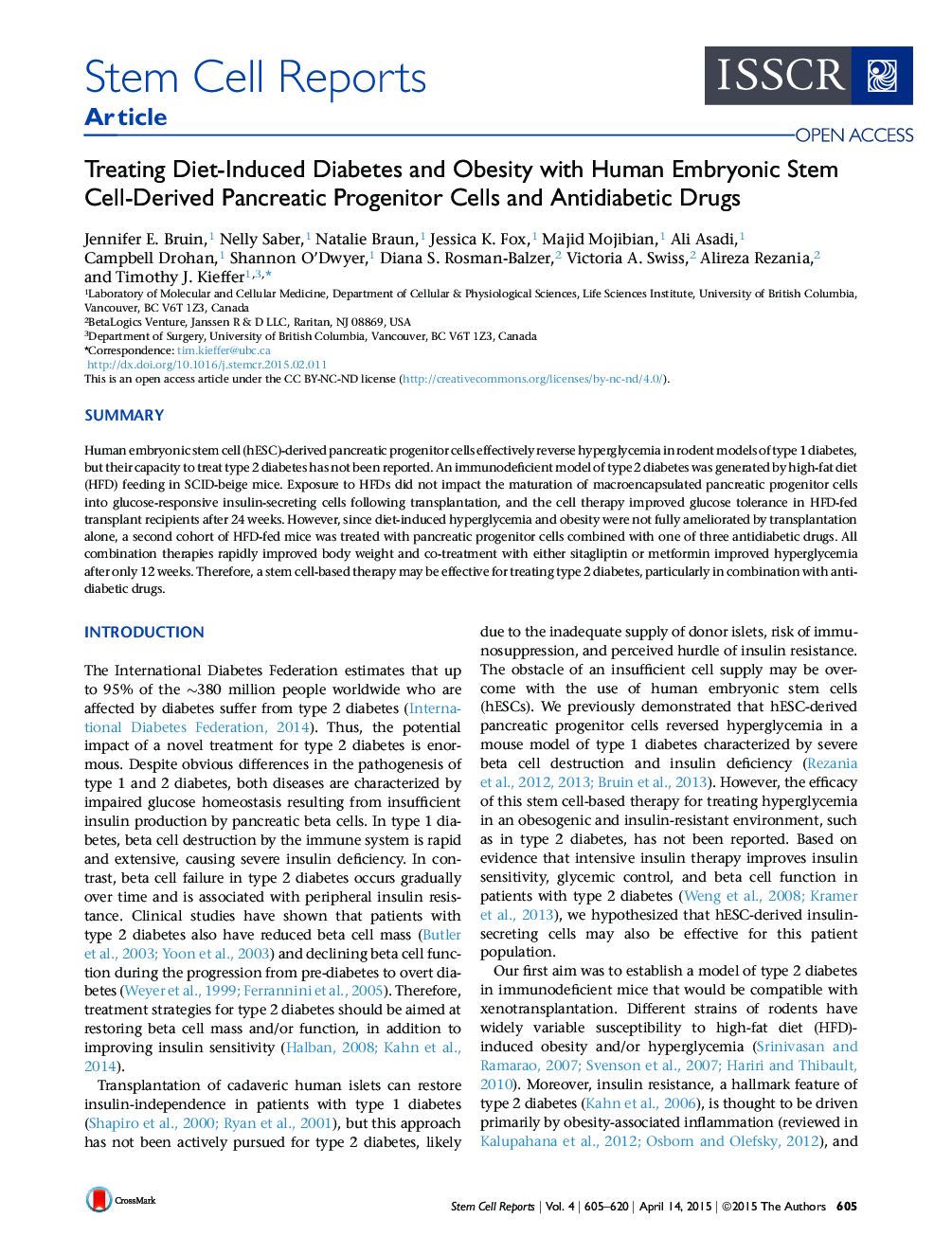| Article ID | Journal | Published Year | Pages | File Type |
|---|---|---|---|---|
| 2093611 | Stem Cell Reports | 2015 | 16 Pages |
•High-fat diets (HFDs) caused rapid metabolic dysfunction in immunodeficient mice•HFDs and/or antidiabetic drugs did not affect function of hESC-derived beta cells•hESC-derived beta cells improved glucose tolerance in HFD-fed mice•Cell therapy combined with an antidiabetic drug was the most effective treatment
SummaryHuman embryonic stem cell (hESC)-derived pancreatic progenitor cells effectively reverse hyperglycemia in rodent models of type 1 diabetes, but their capacity to treat type 2 diabetes has not been reported. An immunodeficient model of type 2 diabetes was generated by high-fat diet (HFD) feeding in SCID-beige mice. Exposure to HFDs did not impact the maturation of macroencapsulated pancreatic progenitor cells into glucose-responsive insulin-secreting cells following transplantation, and the cell therapy improved glucose tolerance in HFD-fed transplant recipients after 24 weeks. However, since diet-induced hyperglycemia and obesity were not fully ameliorated by transplantation alone, a second cohort of HFD-fed mice was treated with pancreatic progenitor cells combined with one of three antidiabetic drugs. All combination therapies rapidly improved body weight and co-treatment with either sitagliptin or metformin improved hyperglycemia after only 12 weeks. Therefore, a stem cell-based therapy may be effective for treating type 2 diabetes, particularly in combination with antidiabetic drugs.
